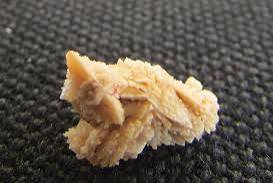Kidney stones, also known as renal calculi, are hard deposits that form in the kidneys and can cause severe pain and discomfort. These stones are made up of minerals and salts, such as calcium, oxalate, and uric acid, that crystallize and stick together in the urinary tract. Kidney stones vary in size and shape, ranging from tiny grains to larger stones that can block the flow of urine.
Symptoms of kidney stones may include intense pain in the back, side, abdomen, or groin, along with nausea, vomiting, blood in the urine, and frequent urination. The pain from passing a kidney stone is often described as one of the most excruciating experiences a person can endure.
Diagnosis of kidney stones typically involves imaging tests like CT scans, ultrasounds, or X-rays to visualize the stones and assess their size and location. Treatment options for kidney stones depend on their size and composition but may include pain management, increased fluid intake to help flush out the stones, medications to relax the ureter muscles and facilitate stone passage, or procedures like lithotripsy to break up the stones into smaller pieces for easier elimination.
Prevention strategies for kidney stones include staying well-hydrated by drinking plenty of water throughout the day, following a balanced diet low in sodium and oxalate-rich foods, and maintaining a healthy weight. Regular physical activity and dietary modifications may help reduce the risk of developing kidney stones.
Kidney stones, also known as renal calculi, are hard deposits that form in the kidneys and can cause severe pain and discomfort. These stones are made up of minerals and salts, such as calcium, oxalate, and uric acid, that crystallize and stick together in the urinary tract. Kidney stones vary in size and shape, ranging from tiny grains to larger stones that can block the flow of urine.
Symptoms of kidney stones may include intense pain in the back, side, abdomen, or groin, along with nausea, vomiting, blood in the urine, and frequent urination. The pain from passing a kidney stone is often described as one of the most excruciating experiences a person can endure.
Diagnosis of kidney stones typically involves imaging tests like CT scans, ultrasounds, or X-rays to visualize the stones and assess their size and location. Treatment options for kidney stones depend on their size and composition but may include pain management, increased fluid intake to help flush out the stones, medications to relax the ureter muscles and facilitate stone passage, or procedures like lithotripsy to break up the stones into smaller pieces for easier elimination.
Prevention strategies for kidney stones include staying well-hydrated by drinking plenty of water throughout the day, following a balanced diet low in sodium and oxalate-rich foods, and maintaining a healthy weight. Regular physical activity and dietary modifications may help reduce the risk of developing kidney stones.
In conclusion, kidney stones can be a painful and disruptive condition, but with proper medical care, most stones can be passed naturally or treated effectively. Early recognition of symptoms, prompt medical intervention, and lifestyle modifications are key in managing kidney stones and preventing their recurrence. If you suspect you have kidney stones or experience severe abdominal pain, it is important to seek medical attention promptly for appropriate diagnosis and treatment.



No comments yet
Be the first to share your thoughts!